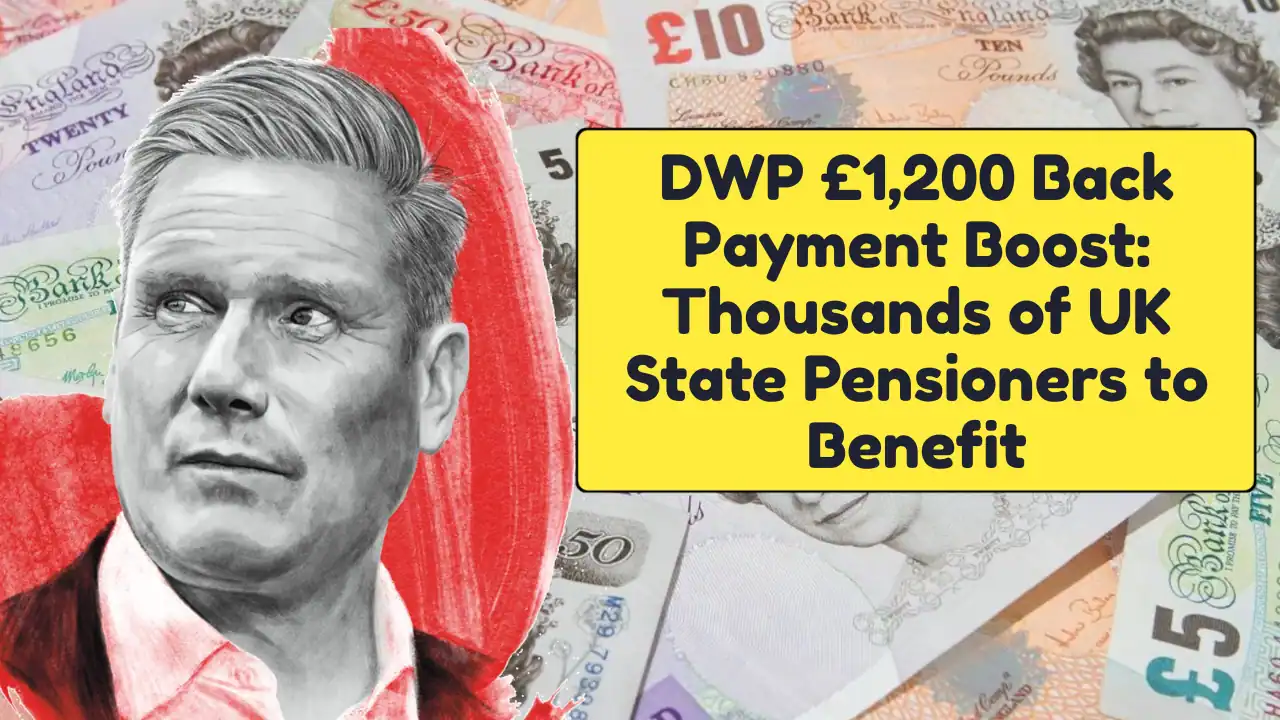Good news could be on the way for thousands of pensioners across the UK. The Department for Work and Pensions (DWP) has confirmed that a £1,200 back payment boost is set to benefit many retired citizens who may have missed out on money owed to them.
This announcement is especially significant given the ongoing cost of living crisis. Rising food prices, higher energy bills, and increasing daily expenses mean that every pound makes a real difference for those living on a fixed income.
In this article, we will break down exactly what the £1,200 back payment means, who qualifies, how payments will be made, and what pensioners should do if they think they are eligible.
Why Are Back Payments Happening?
Back payments are issued when pensioners have been underpaid or missed out on benefits they were entitled to in the past. Errors can happen for several reasons:
- Incorrect record keeping at the DWP.
- Missing information about a spouse’s contributions.
- Administrative mistakes when calculating State Pension entitlement.
The DWP has admitted in recent years that thousands of pensioners were underpaid, particularly women and widows, due to old system errors. This has triggered one of the largest pension correction programmes in UK history.
How Much Will Pensioners Get?
The back payment figure of £1,200 is an average amount. Actual payments will vary depending on:
- How long someone has been underpaid.
- The type of pension entitlement missed.
- Whether the individual is owed interest.
Some pensioners may receive less than £1,200, while others could receive several thousand pounds if errors go back many years.
Who Qualifies for the £1,200 Boost?
The main groups expected to benefit include:
- Married women and widows – many were underpaid because their pensions were not correctly linked to their husband’s National Insurance contributions.
- Over-80s – some did not receive their automatic uplift entitlement.
- Pensioners on lower State Pensions – cases where the DWP miscalculated entitlements.
- Carers and those with gaps in NI records – where benefits were not applied properly.
How Will the Back Payments Be Issued?
The DWP has said that pensioners do not need to apply for the correction in most cases. Payments will be made automatically once the department identifies an underpayment.
The process involves:
- A review of pension records.
- Calculating the amount owed.
- Issuing a lump sum back payment directly into pensioners’ bank accounts.
Payment Timeline
The review process has already been underway for several months. The DWP has committed to finishing most reviews by the end of 2025. However, individual payment dates will depend on when errors are identified in each case.
Real-Life Impact for Pensioners
For many pensioners, an extra £1,200 is more than just money – it’s peace of mind. It could help cover:
- Winter heating costs.
- Rent or council tax bills.
- Food and household essentials.
- Travel costs to visit family.
Example Case: Mrs. Green’s Story
Mrs. Green, a 78-year-old widow from Manchester, was underpaid for more than 10 years because her pension was not updated after her husband’s retirement. After the DWP corrected the mistake, she received £7,200 in back payments.
Stories like hers highlight why pension reviews are so important.
What Should Pensioners Do Now?
While most back payments will be automatic, pensioners should still take steps to make sure they are not missing out:
- Check your pension letters – review the amount you currently receive.
- Contact the DWP if you believe you’ve been underpaid.
- Keep records of NI contributions and marital status changes.
- Seek advice from Age UK or Citizens Advice if unsure.
Wider Context: Pension Underpayment Scandal
The pension underpayment scandal has affected more than 200,000 pensioners in the UK, with total repayments expected to run into billions of pounds.
The National Audit Office (NAO) has criticised the DWP for allowing errors to persist for decades. The £1,200 boost is part of an ongoing effort to fix these mistakes and restore pensioners’ trust.
Government’s Response
The Government has promised that correcting underpayments is a top priority. Officials have reassured pensioners that every eligible case will be reviewed and corrected. However, campaigners argue that progress is too slow and that many pensioners have already passed away before receiving money owed.
What If You’re Not Eligible?
Even if you are not owed back payments, there may be other support available:
- Cost of Living Payments for low-income pensioners.
- Winter Fuel Payment and Pension Credit.
- Local council support schemes.
Preparing for the Future
To avoid missing out in future, pensioners should:
- Keep personal records up to date with the DWP.
- Inform the DWP of any changes (marriage, divorce, widowhood).
- Regularly check their pension entitlement.
Conclusion
The £1,200 back payment boost is a much-needed step towards fairness for pensioners who were previously underpaid. Thousands across the UK will benefit, but it also serves as a reminder for everyone to double-check their entitlements.
For older people struggling with rising costs, this payment could bring real relief – helping them live with dignity and financial security.
